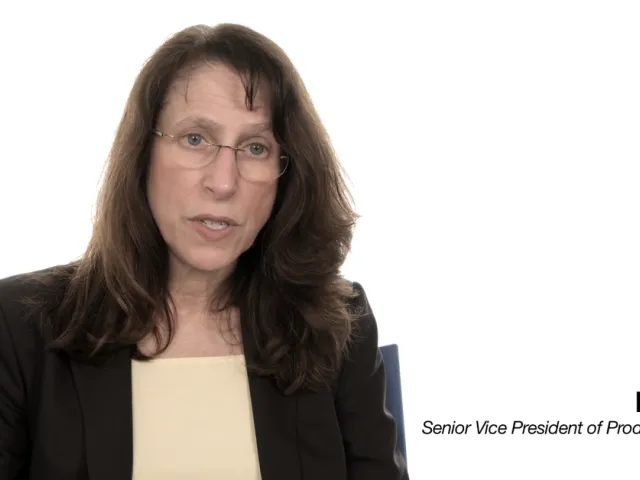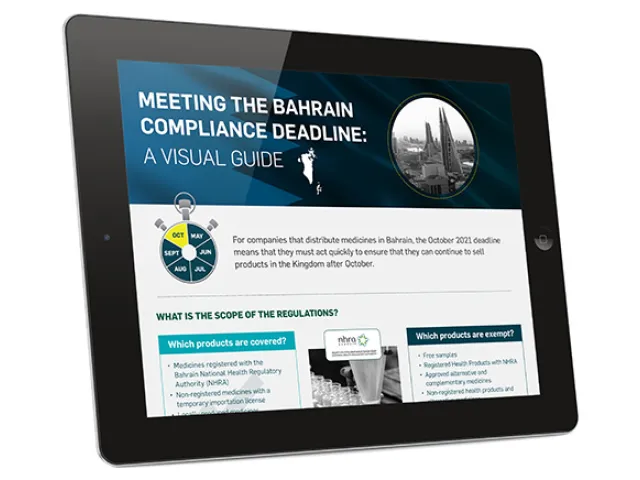Table of contents
In 1981, Bahrain, Kuwait, Oman, Qatar, Saudi Arabia, and the United Arab Emirates (UAE) established a cooperative union called the Gulf Cooperation Council (GCC). While the formal objectives of the GCC include harmonization of regulations, this article looks at key similarities and differences to help pharmaceutical companies manage compliance for medicines traceability. It is important to note that each country has its own legal structure, regulatory oversight, and traceability event reporting system.
Country | Serialization | Traceability Reporting |
|---|---|---|
| Bahrain | Required | Required |
| Kuwait | Required as of January 2024 | Under discussion |
| Oman | Required | No |
| Qatar | Under discussion (currently barcoding only) | Under discussion |
| Saudi Arabia | Required | Required |
| UAE | Required | Required |
Adherence to GS1 standards
Much to the relief of pharmaceutical companies operating on a global scale, the GCC countries have adopted GS1 standards for barcoding, serialization, and aggregation. Traceability reports themselves, however, exhibit differences, most notably in how (or if) the EPCIS standard has been implemented.
Saudi Arabia gets traceability underway
Of the six GCC countries, the relatively populous Saudi Arabia got the earliest start in implementing mandatory traceability for pharmaceuticals with its Drug Track & Trace System, which was modeled on that of Turkey. An adjunct service called “PTS” is used to communicate between supply chain stakeholders to manage, among other things, shipment notifications and product aggregation relationships in those shipments.
Bahrain and UAE traceability
Traceability systems that followed in Bahrain and in the UAE are EPCIS-based, though as noted above, with important differences in how the standard was implemented as well as in the scope and breadth of the reports. These two countries’ systems integrate with the GS1 UAE platform “BrandSync” to source product master data, requiring manufacturers and local agents to coordinate master data ownership and update processes.
GCC medicines outlook
With Kuwait serialization requirements scheduled to go into effect in January 2024, TraceLink believes that traceability reporting will not be far behind in that country. Discussions in Oman and Qatar, while not yet at the legislative stage, will also likely lead to a phased barcoding—serialization—traceability approach.
We also expect GCC cooperation to strengthen further. In February 2023, the Gulf Health Council announced work on an Electronic Patient Information Leaflet “e-PIL” project, which will provide the public with updated, electronic, and harmonized information about medicines throughout the region.
The challenge of stakeholder-to-stakeholder data transfer
Sometimes referred to as “horizontal integration”, exchanging data with trade partners is often an operational necessity, even if it is not a regulatory requirement. Such functionality is out of scope for government-run traceability systems—they focus on complying with the stakeholder-to-central-system reports dictated by the law and relevant guidelines.This lack of horizontal data exchange can create challenges for manufacturers beyond compliance and has an even greater impact on downstream wholesalers.
One of the key challenges for manufacturers is ensuring the correctness and timeliness of data reported to the various countries’ traceability systems. For example, some manufacturers rely on local logistics partners to trigger shipment reports once those goods clear the free-trade zone (FTZ) and enter the commercial supply chain. Since authorities require a one-to-one match of the electronic report with the physical packs imported, precision and efficiency are paramount.
The TraceLink Business-to-Network, Integrate-Once capability enables companies and their supply chain partners to begin exchanging this business information through a single integration to the TraceLink network. After this initial integration, you can easily configure connections to any other partner on the network and begin exchanging any transaction supported by TraceLink. Scale new trade partner connections to support your business needs, without worrying about integration maintenance costs or disruption from partner system changes.
By leveraging the Business-to-Network, Integrate-Once capability, TraceLink Multienterprise Information Network Tower (MINT) improves end-to-end visibility and collaboration with all supply chain partners through real-time communication of business information. MINT supports commercial transaction exchange with trade partners across the pharmaceutical supply chain, and can enable horizontal integration for sharing serialization data.






